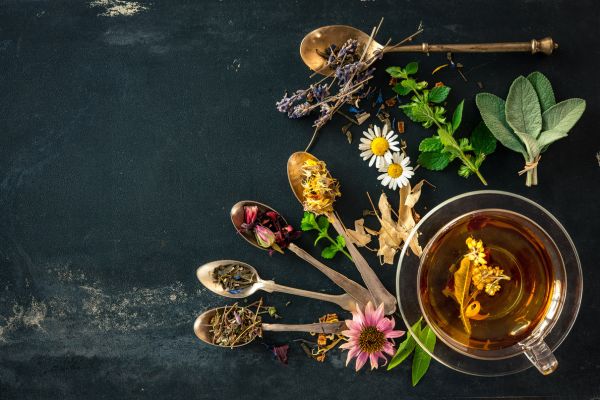Throughout history, cultures under pressure have turned to symbols to preserve their identity.
For Gaúcho communities in Southern Brazil, herbal fragrances have played that role quietly but powerfully. Scents like marcela, rosemary, and boldo are more than domestic aromas — they are cultural codes, carrying messages of resistance, survival, and belonging across generations.
Fragrance as a Form of Silent Resistance
When communities face cultural change, suppression, or assimilation, the simplest traditions often become the strongest forms of resistance.
Burning herbs or preparing teas might appear ordinary, but these practices preserve language, belief, and memory in subtle ways. Unlike political speeches or visible rituals, fragrance works in silence, invisible yet deeply effective.
During times of migration or modernization, keeping the smell of native herbs alive inside homes has allowed families to hold onto their roots. Even when external customs changed, the air inside a home could still carry the ancestral identity of its people.
Everyday Acts with Deeper Meaning
A pot of marcela tea is not just about comfort. For many Gaúchos, it’s a way of remembering Easter traditions, of refusing to let sacred rituals disappear.
Rosemary bundles hanging in kitchens are not just decorations — they’re protective symbols, reminders of faith, family, and the resilience of a community.
These small, repeated acts carry powerful cultural meaning. They say, “We are still here,” even when lifestyles, cities, and environments change around them.
Fragrance as a Collective Identity
Belonging often comes from shared experiences. When a whole community recognizes the same scents, those aromas become part of their collective identity.
Marcela fields in spring or the smell of boldo boiling during winter are sensory markers of being Gaúcho.
These shared fragrances create invisible bonds among people. They signal inclusion, reminding everyone that they belong to a group with a long history, a common memory, and traditions worth protecting.
Resistance Through Continuity
Keeping herbal fragrances alive in daily life is also a form of continuity. Even when families move away from the Pampas, they bring small bundles of dried herbs with them. In new environments, they recreate familiar scents in their kitchens and living rooms.
This continuity resists the erosion of identity. It ensures that children and grandchildren inherit the same olfactory world, even if they grow up in completely different landscapes. The scent itself becomes the heritage.
The Emotional Armor of Scents
Fragrance doesn’t just preserve culture; it protects emotional well-being. Migrant families often face feelings of loss or alienation.
Familiar scents act as emotional armor, providing comfort and grounding. Lighting rosemary or sipping marcela tea can restore a sense of normalcy in the middle of cultural dislocation.
This emotional role reinforces resistance. It helps communities endure challenges by giving them invisible but powerful anchors that tie them to their origins.
Hybrid Practices in Modern Times
Resistance doesn’t always mean rejecting change. Many modern Gaúcho families adapt by combining traditional herbs with new tools. Essential oil diffusers, candles, or sprays carry the same aromas but fit contemporary lifestyles.
This blending shows that resistance can be flexible. What matters isn’t the exact form of the ritual, but the preservation of the cultural essence. By adapting, communities keep their traditions relevant and sustainable.
Scents as Markers of Belonging
For people returning to their hometowns after long absences, scents are often the first signal of belonging. The aroma of boldo drifting through a street or marcela being sold in a local market instantly says, “You’re home.”
In this way, fragrance acts like a passport to identity. It doesn’t need words, documents, or introductions. Belonging is felt instantly through the nose, bypassing rational thought and reaching directly into memory.
The Political Power of the Invisible
Fragrance may seem apolitical, but its role in preserving culture makes it powerful. When communities continue their scent traditions despite external pressures, they’re making a statement: cultural identity cannot be erased.
The invisible nature of fragrance makes it harder to suppress. Unlike songs, costumes, or flags, scents can pass unnoticed by outsiders, yet carry deep significance for those who share the code. This subtlety makes fragrance a quiet but enduring form of cultural resistance.
Generational Transmission of Strength
Parents and grandparents pass these practices on by involving children in simple rituals — drying herbs, boiling teas, or preparing aromatic blends.
These acts teach resilience without lectures. Children learn that being Gaúcho is not only about history books or geography; it’s about the scents that shape their daily lives.
As they grow, they carry this resilience with them. Even if they leave home, the moment they smell marcela or rosemary, they reconnect with the strength of their ancestors.
Conclusion
Herbal fragrances in Southern Brazilian culture are more than pleasant traditions. They are symbols of resistance and belonging, carrying the identity of a people through centuries of change.
In every burning sprig of rosemary, in every simmering pot of boldo, there is a message: we endure, we remember, we belong.
Fragrance doesn’t shout — it whispers. Yet those whispers are strong enough to preserve heritage, protect emotions, and strengthen communities across generations.
